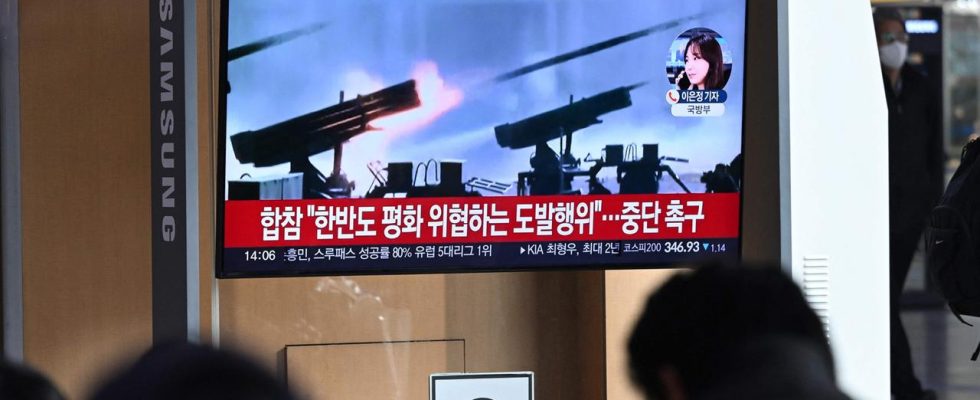The situation on the Korean peninsula is getting worse: South Korea has reported around 200 artillery shells from North Korea near the maritime border. Islanders were urged to get to safety.
According to South Korean information, North Korea’s military fired more than 200 artillery shells near the disputed maritime border between the two hostile states. The general staff in South Korea said the projectiles fell into the Yellow Sea north of the maritime border line. The grenades caused no damage.
South Korea called the artillery fire a “provocative act that endangers peace on the Korean Peninsula.” North Korea must “immediately stop these actions,” the defense ministry said in a statement, warning it would respond with “appropriate” measures.
Appeals to islanders
Officials on Yeonpyeong Island near the border told AFP that residents had been urged to seek safety. It is a “preventive measure”. The island is located twelve kilometers south of the North Korean coast. In 2010 it was the target of a North Korean artillery attack, killing four people.
A Baengnyeong Island official said the evacuation “will be announced at this moment.” He had been informed that the South Korean army would soon be holding a naval exercise.
Kim speaks of a “test of strength”
North Korean state media had previously reported that leader Kim Jong Un had called for an expansion of rocket launcher production during a factory visit – in preparation for a “military showdown” with South Korea and the USA.
Tensions on the peninsula are currently escalating. According to the South Korean news agency Yonhap, the armed forces of South Korea and the United States also began an artillery exercise near the border with North Korea on Thursday.
The area around the maritime border has been the scene of repeated battles between warships from both countries in the past. The so-called Northern Limit Line (NLL) is not recognized by North Korea. The border line was drawn unilaterally by a UN command after the Korean War (1950-53) to prevent hostilities between the two sides.
Kathrin Erdmann, ARD Tokio, tagesschau, January 5th, 2024 6:59 a.m

